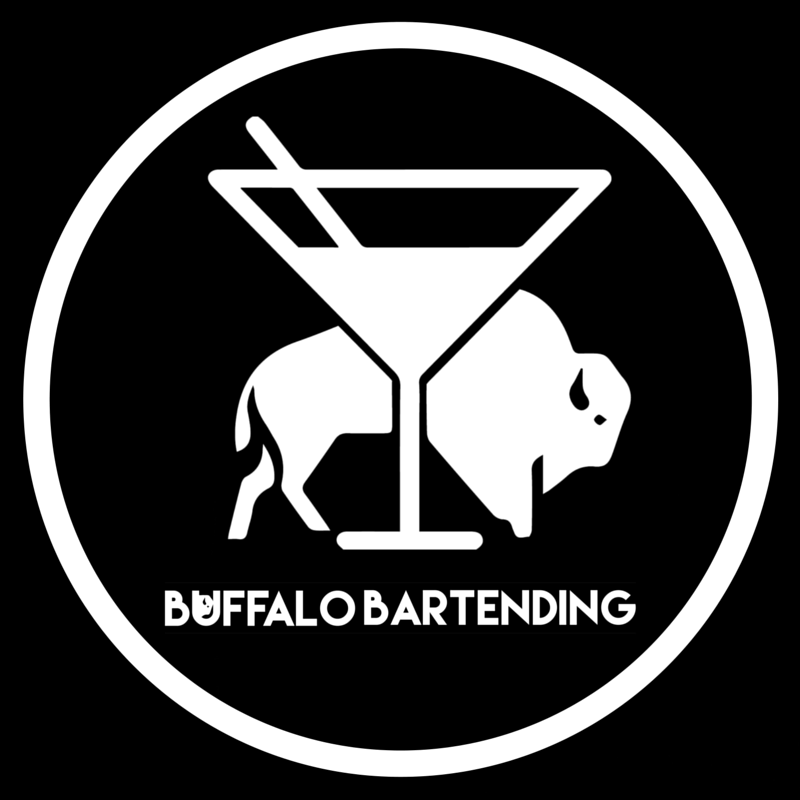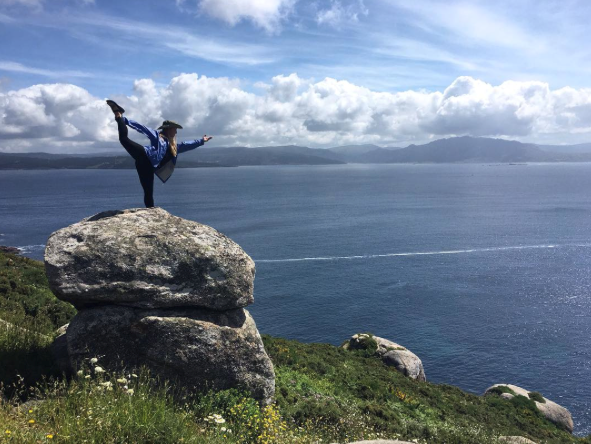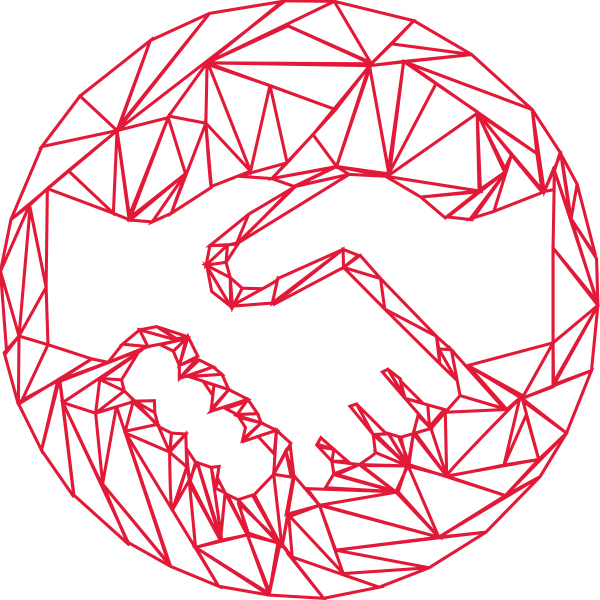How I Ended Up on a Hike in the Middle of a Jungle.
Two hours into the trek, I was covered with sweat and my legs felt like rubber, but I was loving it. My teammate and I had decided to hike the tallest peak on the island and the path led us right through the middle of the jungle.
At one point it hit me; never did I imagine I would be hiking through a jungle in distant southeastern Asia. I mean, this thing looked like I was in the Jungle Dome at Henry Doorly Zoo. It was crazy. I was really in the middle of the jungle. And did I mention this trip was entirely free?
Steve Jobs said in a speech, "You can't connect the dots looking forward; you can only connect them looking backwards. So you have to trust that the dots will somehow connect in your future."
I thought about this quote as I was hiking through the jungle. How did the dots connect for me so that I ended up here? It started with a flier on the wall. I had been working with my teammates for a couple months on a new project called FarmAfield. We thought there was a way to create a new marketplace in agriculture to let people from all over the world invest in farms. While we were working on this, I was on campus, passing through the Gaughan Center when a flier on the wall caught my attention. It was from the Thought for Food Challenge, a startup contest focused on companies that innovate in agriculture or food.
I didn't know anything about the contest, but after digging into their website, I found that the finals of the challenge were held in Switzerland, and I thought that was pretty cool. So I put together an application in two days and sent it in. I had read that over 400 teams apply for the challenge from around the world, so I thought little of ever hearing back from them.
Then I get a very unexpected phone call in my dorm room inviting FarmAfield as a finalist. I'm pretty sure it woke me up from a nap. Our team flew halfway around the world and we met outstanding entrepreneurs from many different countries all working on startup companies; it was crazy (we even went skiing in the Alps afterwards)!
We didn't win the contest, so when we returned home, we all thought we were pretty much done with that adventure. The Thought for Food Organization had some contacts with a few online news sites, and asked if one could do a write up on us. We agreed and a short article was published by the Food Bytes website describing our marketplace. It was very nice for the organization to share the article, but we never thought it would go anywhere.
And then I got a sketchy-looking Facebook message from some guy named Chai from Thailand. He found our article in a Google search, liked what we were doing, and invited FarmAfield to speak at the first annual Smart Startup Thailand conference. I was convinced this was one of those 'Nigerian Princes asking for me to wire him some money' or "join this pyramid scheme"' type of things. My friends told me I would most likely be kidnapped if I went. However, I did some more research and was about 80% sure that it was real.
That being good enough for me, a teammate and I jumped on a plane, flew halfway around the world again, and ended speaking at a startup conference in Thailand. Afterwards, we visited a few beautiful islands and finally went hiking in the jungle.
The path to get to the jungle seems somewhat unreal to me. Just that Chai from Thailand found us in a random Google search is astounding to me. The lesson here? Always be building something.
When I look back at how my dots have connected thus far, I realize that none of these would have happened without first starting FarmAfield. I never expected to be traveling the world when we started building our business, but because we were building something, the opportunities showed up, and I'm confident that as we continue to build, more opportunities will show up.
You have to be building something to start seeing those opportunities. You don’t have to have all the answers, we sure didn’t and still don’t. You don’t have to have the expertise or knowledge. You don't have to have a special connection. You just need to start building.
Then, maybe you'll end up halfway around the world talking about an enterprise you are passionate about. I've got some suggestions if it takes you to Thailand.
Just start building and get ready for the adventure it takes you on.
BUILD by Zach Settje

Build- perhaps the most difficult and time consuming pillar of the Engler Experience. Most people have passion; everyone can aspire to something, however, it takes the best of the best to have the courage and grit that is required to build an enterprise. To “build” takes the best partnerships of mankind, the most effort, and more strategic planning than any other endeavor in the world of entrepreneurship.
Take a moment to compare the pillar of build to the endeavor of climbing Mt. Everest- the most challenging and respected climb in the entire world. Base camp of Everest is located at 17,000 feet above sea level, higher than anywhere in the continental United States; most likely higher than anywhere you have ever been. This base camp is the ideation process of entrepreneurship. By aspiring to and planning your venture, you are already reaching higher than 99% of the people in this world.
On the Nepalese side of Everest, there are four major camps that are located above base camp. Camp one, at 21,300 feet, is the stage of researching and consulting with your mentors about your business venture. Sherpas, the mentors of the journey that most climbers cannot survive without, almost always guide those who attempt Everest. Find your Sherpa in your journey of entrepreneurship, and do not be afraid to rely on them when you hit your breaking point.
By the time you hit camp two of Everest, you’ve got an adequate feeling of the journey ahead of you. You’ve got a plan laid out, which comforts you at times, but you are more excited and intimidated at the same time than you have been in your entire life. Brace yourself, because the next parts of your journey will get rocky.
You continue your climb upwards against the odds of human nature and ability. At camp three, the only thought in your mind is to turn around now before you risk it all. Camp three is desolate, many climbers do not make it this far, and those who do are not who you expected. You expect the most confident and able climbers to make it this far- but what you cannot measure is the willpower and grit that is needed to get this far. Now, you’ve got your time, your reputation, and your own money on the line after you leave camp three. There is no turning back now.
Camp four: the most desolate gathering of human beings in the world. These individuals are different in nature- they have one goal in mind and will not stop until they reach it or fall while trying. Camp four of Everest is on the verge of the Death Zone at 26,000 feet, where the air is so thin that you will slowly die without supplemental oxygen. For the entrepreneur, this oxygen is your team, your financial support, and your inner fire to reach the summit. Without all of these resources, your journey will not be a success.
Past camp four, your journey into your business launch is literally “fly or die”. You’ve got limited time, limited supplies, and the only thing pushing you forward is that flame inside of you that is reaching for the top. There are two major “steps” on the route to the top of Everest after camp four. These steps are sheer rock shelves that are seemingly insurmountable, and can be compared to the risk of going all-in on your business launch. You must plan your route with exact precision, but be ready to pivot in any situation. These rock shelves are equipped with mounted ropes and ladders to assist you- but you better know how to use them. These ropes and ladders are your mentors, your funds, and your resources, but without an inner drive to overcome these obstacles, these resources will not be enough. Be prepared, because climbing these steps will be the most difficult and risky moments of your life.
So here you are, a thousand feet from the top. You are absolutely exhausted, on the verge of breaking down, and are questioning everything you have done to get this far. The only thing in front of you is a narrow, winding ledge of rock and ice, and that fire in your belly is the only reason you push forward against all odds. Choose each step carefully, do not rush yourself but do not idle in place, and you will reach the summit.
You’ve now accomplished what is seemingly impossible. You are at the summit of Mt. Everest, the highest place on the planet that only few have accomplished. Many have failed next to you along the way; many have given up and turned around. This is your business, and no one knows it better than you. But make no mistake in understanding that your climb is not over yet…
Atmosphere! What do you surround yourself with?

Atmosphere! What do you surround yourself with?
The atmosphere when 90,000 people sound like 900,000 on game day at Nebraska, a nervous room of 5,000 excited, worried, anxious new freshman students, or moments before an intense 72 hours at the Engler 3 Day Startup weekend all have the same adrenaline-filled feeling. Being around different atmospheres can determine the reactions to events, shifting a person’s paradigm, and potentially driving a person out of their comfort zone.
I have concluded that Engler as an organization has its own atmosphere developed by the kind of people who take part in the events. Whether it be in the classroom setting, at an Engler rally, or a group of Engler students getting together for an evening at Coop’s Corner, there is a tension in the air. Some of the building blocks of the tension are constructed from ideas ready to be brought to reality, students with the same passion and grit coming together, and a “fire in the belly” that builds character.
Some people may see tension as a negative attribute in a situation, but it’s the thought and direction taken that can transform it into a positive. Just as people see failure as negative; if one is taught to fail fast, fail forward, and fail cheap, it can become a positive outcome. The tension in the atmosphere of the Engler program creates the attitudes of the students and helps as a driving force for them to become leaders and more importantly entrepreneurs. So, what is it you will surround yourself with to create a strong atmosphere in order to be successful?
GRIT by Logan Kalkowski

GRIT!
“Striving for success without hard work is like trying to harvest where you haven’t planted.” ~ David Bly
This quotation has been a model for me and is now something I carry throughout my life. I stumbled across this quote my senior year of high school when a teacher assigned us to find a quote that we could use to explain ourselves. I chose this one. When we want to make an impact on someone’s life, it is important to make sure our intentions match up and are compatible. Then we can better see how our own experiences can be integrated into theirs to form one new team that can work together towards a goal. This idea plays into the word that has so much meaning and power, GRIT. Grit is courage and resolve, the idea of strength of character.
My experience with grit is portrayed through the purpose of the backbone. The human body has 206 bones at adulthood that all serve a significant purpose and are used at different times of activity. For example, the human jaw, the mandible, is what allows us to talk and communicate our thoughts and ideas. Our carpals, bones in the hands and wrists, help us to have the strength to swing a hammer or conduct an orchestra. But one of the strongest and most important parts of the body, and the one that connects the central nervous system, is the thoracic vertebrae or the backbone. The backbone is composed of 33 individual bones, each of which serves a unique and different purpose. This is true grit. It is the ability to work together and share true passion.
Entrepreneurship is a shared passion. An entrepreneur is someone who will go above and beyond to make a difference in something they have a passion for. We all have a vested interest in making a difference, so why not share a passion? God created the body to be able to form together and work together. When we partner together, we can create grit. We are able to put a backbone into an idea and make it become a reality. Being able to go above and beyond for a project and making it a passion and never giving up on it is why the University of Nebraska’s Engler Entrepreneurship program is breeding success. The program is nurturing entrepreneurs and building enterprises that encompass true grit--all with the idea of making a difference.
How to Actually Start Your Own Business by Brennan Costello

I had it all planned out. My senior year was going to be a year all about enjoying my time, really committing to the things I was passionate about and finally starting my own business: Buffalo Bartending.
Buffalo Bartending was an idea that I had been tossing around for some time. I saw that most college students know nothing about bartending and just order the cheapest, terrible tasting drinks at the bar. I was going to create a company that offered quick, fun, cheap classes teaching college kids about different types of alcohol and how to drink it. I had a business model worked up by the time that August rolled around and was ready to start really working on it.
But then things got busy.
First it was just class, but then it was a couple weekly organization meetings, then it was a part time job, then it was an impromptu trip to the movie theater, then it was a few more obligations that I said yes to. And before I knew it, I was back to the regular college-kid schedule of just trying to get to my meeting and wanting the next weekend to get here.
My business idea went nowhere and my senior year flew by very quickly. And many of the college students I talk to now are doing the same thing. Having been through this, my suggestion is to focus more on starting something, instead of just getting involved in a huge number of organizations or wasting your time away. I really wish I would have started my Buffalo Bartending business. Part of me still really wants to - I think it's the 'fire in your belly' that causes the desire to start something of your own. But when we run the regular college-kid schedule and fall into the same bad habits, we never give ourselves a chance to live out a dream of starting our own venture. So I've listed a few resources and philosophies below that could help you avoid this common time trap.
1. Block your time. Get your calendar in front of you and block off 2 hours everyday. These two hours become your time to think, innovate and get real work done. I've found these are crucial to actually making progress on my business goals. I like using the Pomodoro Technique to manage this time chunk -pomodorotechnique.com/. This is hard, and I'm not very good at it yet, but we've got to find a way to fiercely protect our time. If you let other obligations or people control your schedule, you'll always find yourself working to fulfill their mission, and not your own.
2. Don't go it alone. This keeps you accountable and motivated. Pick out a group of 2-3 people who want to build this with you, and make sure you are all focused on a similar mission. A goal becomes 50% easier to accomplish when you tackle it with a partner at your side. (Not scientifically proven, but that's what my experience has taught me.)
3. Pick one big thing. Based upon The One Thing by Gary Keller, pick one big thing that would make everything else you do easier or unnecessary and attack that thing each day. This may seem impossible, but it makes a huge difference for you when you can find that narrow of focus.
Use these tips, and don't repeat my mistakes. If you live your life in college a little differently now, you can live your life much differently later. I'll end with a quote from Seth Godin that sums up what I'm trying to get across.
"The only thing worse than starting something and failing… is not starting something at all."
So get going!
Intentionality by Emily Bledsoe

Intentionality has always been a word that I honestly never stopped to think about. You can intentionally do something, but what if you were to go out of your way every day and be intentional about your goals, with people, and with your time.
Engler has taught me that in order to build and establish your dreams, you must never rely on something to simply. . . happen. Enterprises do not just bloom out of an idea without being shadowed by pure passion.
So what does this have to do with intentionality?
Freshman year, Tom Field said something in my entrepreneurship course that I will never forget. He told us that being realistic is the most commonly traveled path to mediocrity. After thinking about what this meant to me, I decided to purposefully build a network of people who not only pushed me, but invested into what I loved doing.
For me, it took Tom’s words to understand the value of intentionally or purposefully reaching likeminded people. Going out of your way to deliberately increase interaction and purpose behind these interactions.
The Engler community has exhibited this purposeful interaction with conversations and will forever impact the way that I view talking with people. Potential partners, potential investors, or potential clients; every interaction should hold to this idea of intentionality.
Day in the Life of the Chief Learning Officer by Dave Lambe

Morning starts early (4:30 AM), it’s going to be a good week! Over 160 boxes of flowers came in over the weekend that need to be processed, but, someone is sick and cannot make it to work today. A customer 90 miles away needs product as soon as we can get there, some product came in bad and needs credit, and we need more deliveries in one route because we can’t justify a drive to Grand Island with an order of only $150.00. E-mail has a HUGE order on it from one of our best clients, a new client orders product for the first time, we are looking to hire another driver, and payroll is due today. Time 6:00 am. This really is a good day! I’m happy. This is what gives context for discussion in class about change, pivots, and resource allocation in a small business. I actually enjoy this environment.
UNL started this week, I am responsible for over 130 students this semester, the graduate students want to get into the course material right away and have their first assignment handed in by Monday evening, lunch with my TA to discuss our strategy for making the class experience this year better than last, piloting a new platform for course material- because I know it is coming, meet face to face with over 10 students discussing their business ideas, some need patents, some need partners, some need funding, some need coding, some need ideas, some just need to catch up from their summer internship. Tom asks if I can squeeze two more students into a class, I set up a meeting about hydroponic towers with a colleague that could lead to STEM course material for high school educators, miss my meeting with Andrew but have a masters student that I need to connect with because of it, take on 5-6 more advisees to help out a colleague who is sick and out for a while, the department wants me to be on another committee. Time 7pm. This could give some credibility to my discussion in class about change, pivots, and resource allocation in an enterprise. No better life than that of an entrepreneur, from making your own decisions about how you spend your day, to spending time with people you enjoy, to fulfilling your own aspirations and dreams, all while serving others and empowering enterprise builders.
– Best position on campus!
Passion by Jeff Hornung
Passion - You’ve got to have that fire in your belly…
Passion is an interesting animal; it can drive people crazy. Passion can defy all logic. Passion can even destroy an empire, nation, or company. However passion can provide immense openings for success and wealth building. It can also give courage and strength to those who need it most. But perhaps the most valuable thing passion can do is create.
To have passion is to create opportunity. To follow passion is to act upon a burning fire within you; something that you yourself can’t even explain fully. Passion is hard to understand and even harder to define. This pillar of our program comes in many different shapes, sizes, forms. But one thing is for sure: Passion is alive within the people who recognize it.
When individuals make decisions to follow their passion, they are making a choice to invest in themselves. When a group makes the decision to follow its’ passion, the members are making a choice to invest in a greater cause (one that’s often bigger and better than the group itself). Passion has the ability to make individuals and groups do just that; believe in something greater than the norm.
PASSION – An undeniable (sometimes undefinable) fire within one’s self to align with a certain idea, concept, or action. Passion creates opportunity, becomes alive within us, and forces us to believe in a cause greater than we can ever imagine. So don’t try and define or capture passion, for it's already within you. Identify your fire – then set the world ablaze!
Pirate Radio by Dr. Tom Field

My first entrepreneurial experience was actually driven by my friend Dan who at an early age developed a fascination with radio broadcasting. In sixth grade, he built a radio station in his bedroom which allowed him to broadcast within about a four-block square area. However, with a bit of innovative engineering he was able to boost the range to nearly half of the homes in our rural community. My friend Rex and I were employed as scouts and mounted on our trustee three speeds complete with banana seats and equipped with a battery powered transistor radio we would test the limits of the broadcast and the strength of the signal. We helped with scripts and programming while Dan in his most Chet Huntley voice would share the news, sports, weather, and assorted commentary with all who would listen. As I recall, eventually Dan’s pirate radio enterprise either interfered with the local station or annoyed some of the citizenry and the FCC shut him down. But the management at KGUC recognized his ambition and by the time Dan was a senior in high school he was the voice of media in Gunnison, Colorado.
Twelve-year old Dan was teaching us that an idea without execution was not nearly as much fun as actually getting to market, having a live signal and sending our voice onto the airwaves. He was modeling the power of experimentation, of taking action, and of not letting limited resources get in the way of making stuff happen. He didn’t see his bedroom – he saw his own version of the NBC newsroom; he liked music that the local station hadn’t yet embraced and thought he could do something about sharing it, and come hell or high water he was not about to settle for playing radio station when he could actually have a live broadcast.
Tom Peters exclaims that the only way forward is to try things – lots of things and to engage in the experimental model of hypothesis testing – i.e. TAKING ACTION. If you have the gleam in your eye and fire in your belly then go for it – leave the comfort of the harbor and set sail for the new land.
The Meaning of Partnership by Davis Behle

Join Us!
Feeling that Engler fire? Ready to start this journey?
